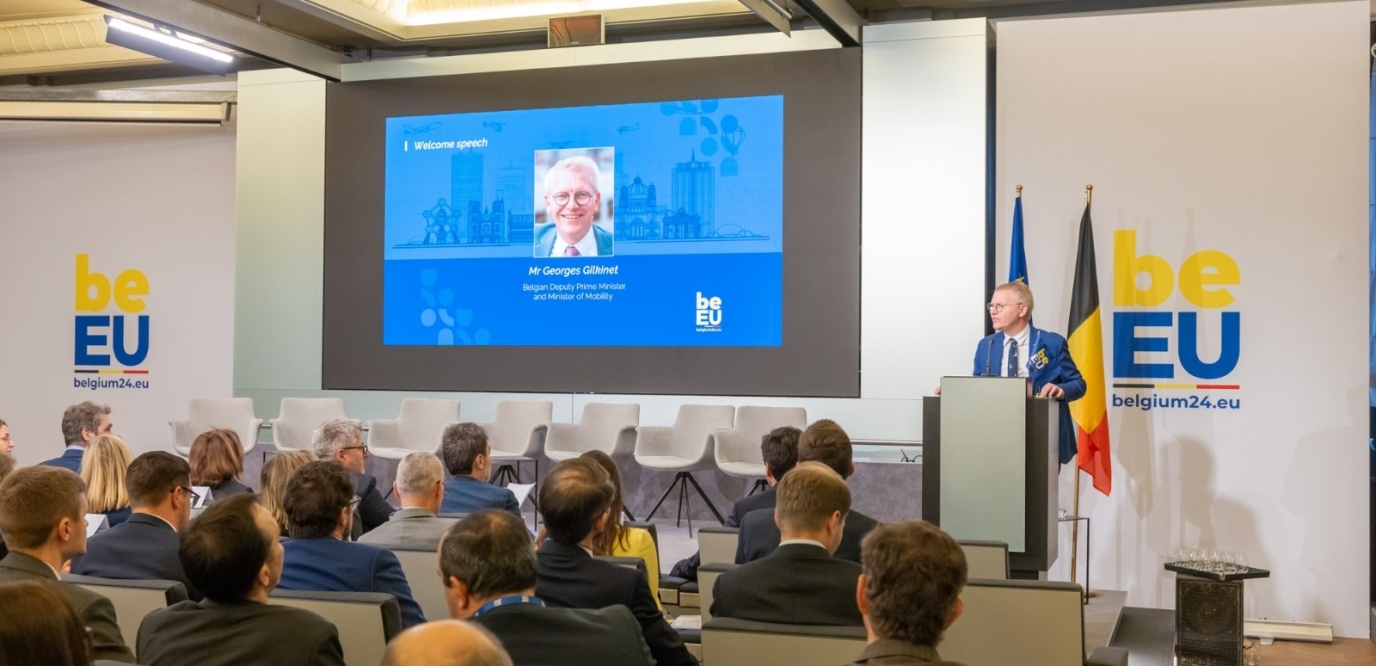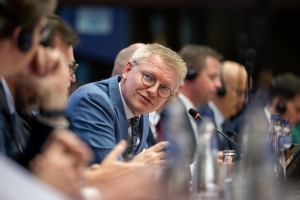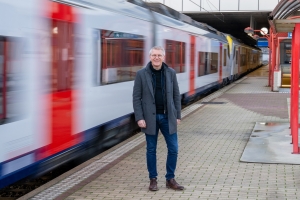Aviation Conference: Policy recommendations of the Belgian Presidency for the next legislature to promote sustainable air transport

In the coming years, the aviation sector will be facing major challenges to become sustainable from an environmental, social, and economic point of view. The entire aviation industry must be able to carry out its operations without compromising the well-being of current and future generations. This entails significant changes for both the industry and regulators.
Several actions have already been taken at the European level to move forward. An example is the ReFuelEU Aviation Regulation, which provides a harmonised framework for the uptake and supply of sustainable aviation fuels or the recent agreement on the revision of the Single European sky (SES2+). With the new EU legislative term in sight, it is imperative to consider the actions already in place and their follow-up while also thinking of new actions that need to be taken.
Following the Aviation Conference held in Brussels on the 9th of April 2024, the Belgian Presidency, represented by the Belgian Deputy Prime Minister Georges Gilkinet, calls on the European Union to take the following steps during the next legislature:
Make aviation environmentally friendly
- Integrate air traffic management (ATM) measures, as a short-term means to decarbonization, as part of a broader strategy for decarbonization within the European Union (EU) and more particularly in the perspective of the revision of the ATM Master Plan.
- Promote the introduction of climate criteria in the modulation of charges for aviation services, such as air navigation charges and airport fees.
- Prioritize measures that directly contribute to reducing both CO2 and non-CO2 emissions, such as optimizing flight routes, enhancing air traffic flow management, and promote more environmentally efficient operational procedures such as green approaches and CDO/CCO.
- Explicitly recognize non-CO2 effects of aviation at the EU level and their importance in the context of environmental impact assessments.
- Support the development of comprehensive monitoring mechanisms to accurately measure and assess the non-CO2 effects of aviation activities, including research initiatives and data collection efforts.
- Reflect and research within the new Single European Sky (SES2+) framework on how to further defragment airspace and integrate environmental criteria without compromising safety.
Promote high social standards :
- Guarantee and promote high social standards among aircrew and for all workers of the aviation sector.
- Legally define the operational base and make their existence known by the relevant authorities to strengthen their capacity to enforce of social rights.
- Call on the European Labour Authority to reinforce its action in order to support national Labour Authorities and Social System Authorities in enforcing social rules as well as raising awareness among employees and employers in the aviation sector about their rights and their duties.
- Harmonize rules related to topics such as the posting of workers, self-employment and pay-to-fly practices.
- Give Civil Aviation Authorities the role of providing their expertise of the aviation sector to relevant stakeholders (Labour and Social System Authorities, European Labour Authority, social partners…) and of actively collaborating with Labour and Social System Authorities (for instance, access to airports for Labour law inspections purposes,…) in order to better enforce social rights.
Ensure an economic level-playing field
- Enhance the effectiveness and strengthen the external aviation policy through agreements between the EU and third countries to ensure a sustainable level playing field.
- Promote upward regulatory convergence with third countries concerning economic conditions governing the sector as well as social, environmental, human rights, security and safety standards .
- Uphold the economic sovereignty of EU aviation companies to ensure the correct connectivity level with the rest of the world.
Other concrete policy recommendations :
- Make the modal shift towards rail transport a central objective of European mobility policy to offer a viable alternative to short- and medium-haul flights in Europe.
- Revise the Regulation (EU) 1008/2008, with a particular focus on environmental issues and more particularly its article 20, but on social standards as well.
- Explore how true cost pricing mechanisms can be implemented to accurately reflect the environmental and societal impacts of aviation.
- Study the possibilities to regulate private jets activity at the European level, with the aim of reducing its environmental impact and putting forward social responsibilities.
- Initiate a holistic revision of Regulation 95/93 to introduce provisions that allow for more agile responses to unforeseen events, such as public health emergencies or natural disasters, without compromising safety or environmental standards, in order to avoid empty flights
- Conclude the revision of the Energy Taxation Directive with the aim of no longer exempting fuels used for intra-EU air transport from taxation, and therefore apply the Polluter-Pays principle.


